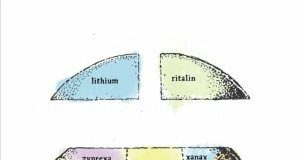Tag: autism spectrum
How and Why Neurotypicals Misunderstand and Mistreat Autistic People
Commonly used autism interventions, such as ABA, have been found to be both ineffective and abusive, inflicting trauma on those subjected to them.
Insane Medicine, Chapter 4: The Manufacture of Autism Spectrum Disorders (Part...
Because the “scientists” who study, categorise, and establish guidelines for autism can’t find anything definitive, they resort to scientism. Over time, it becomes part of our cultural “common sense.”
I Don’t Believe in Autism
The conversation about what truly constitutes “autism” is an ongoing one. Although I resist the label personally, I do not begrudge anyone for identifying as autistic, or seeking out an autism diagnosis. Leaving this discussion within the domain of medicine is limiting. That’s why a new discourse is emerging, not among doctors, but among activists who push for autistic self-advocacy.
“Virtual Autism” May Explain Explosive Rise in ASD Diagnoses
New clinical case studies have found that many young children who spend too much screen time—on TV’s, video games, tablets and computers—have symptoms labeled as “autism.” When parents take away the screens for a few months the child’s symptoms disappear.
The Social Consequences of a Diagnosis on the Autism Spectrum
It’s time to change how we think about and relate to people whose makeup is or appears to be different from the norm. Currently, the dominant way in research, practice and the general public is to think of what’s different—let’s say a biological or neurological difference—as the source of disability and difficulty, and to relate to and treat (in various ways) that biological or neurological difference. But there’s another way to go, and more and more researchers and practitioners are taking it.
“The Vacuum of the Mind: A Self-Report on the Phenomenology of...
In this month’s Schizophrenia Bulletin, a person diagnosed with autism, OCD, obsessive-compulsive personality disorder, and major depressive disorder provides a first-hand close reading and description of their own psychiatric experiences.














